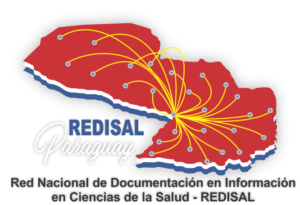Etapas del modelo conductual de los estilos de vida propuestos por las guías alimentarias del Paraguay en adultos
Stages of the behavioral model of life styles in adults proposed by food guides of Paraguay
Mem. Inst. Invest. Cienc. Salud (Impr.); 13 (1), 2015
Año de publicación: 2015
Las etapas del modelo conductual de las personas describen el cumplimiento o no de las recomendaciones para una vida sana. Por ello, se planteó una investigación observacional descriptiva cuyo objetivo fue evaluar las etapas del modelo conductual de los estilos de vida propuestos por las Guías Alimentarias del Paraguay en adultos que residen en el barrio Salvador del Mundo de Asunción. Las variables de interés fueron las etapas de cambio, medidas a partir del modelo de Prochaska, para el consumo de sal, ingesta de bebidas alcohólicas, actividad física y manipulación de alimentos, tres de ellas están relacionadas al no cumplimiento y dos al cumplimiento de las recomendaciones. El 92,9% (91/98) de los adultos no cumple con las recomendaciones de actividad física y el 71,4% (70/98) con las recomendaciones de consumo de sal. El 46,9% (46/98) cumple con la recomendación para el consumo de bebidas alcohólicas, aunque el 74,5% (73/98) refirió su consumo. Ningún encuestado cumple con las recomendaciones de lavado y manipulación de alimentos. Es preocupante el alto porcentaje de adultos que no cumple las recomendaciones, agravado por la no intención de cambio. Por lo tanto, se puede concluir que el objetivo inicial de las guías alimentarias del Paraguay de orientar a la población sobre los estilos de vida adecuados no se cumple. Debido a esto, se debe promover la revisión del medio de implementación de las mismas para alcanzar a un sector mayor de la población, y así lograr la adopción de mejores estilos de vida.
The stages of the behavioral model describe the compliance or not of therecommendations for a healthy life. Due to this, a descriptive observational study wasproposed to evaluate the stages of the behavioral model of the life styles proposed by theFood Guides of Paraguay in adults living in the Salvador del Mundo neighborhood ofAsunción. The variables were the stage of changes, measured from Prochaskas model,for salt consumption, alcohol intake, physical activity and food handling, three of themrelated to noncompliance and two to compliance of the recommendations. The 92.9%(91/98) of the adults did not comply with the recommendations of physical activity and71.4% (70/98) with the recommendations of salt intake. The 46.9% (46/98) compliedwith the recommendation of alcohol intake although it was observed that 74.5% (73/98)consumed some. None of the survey respondents complied with the recommendations offood cleaning and handling. It is worrying the high percentage of adults that did notcomply with the recommendations of physical activity, worsened by the non-intention ofchanging. Therefore, it can be concluded that the initial objective of the food guides ofParaguay to orientate population about the adequate life styles is not complied. Due to this, the revision of the implementation means or system should be encouraged to reacha larger sector of the population and thus, comply with the adoption of better life styles.


